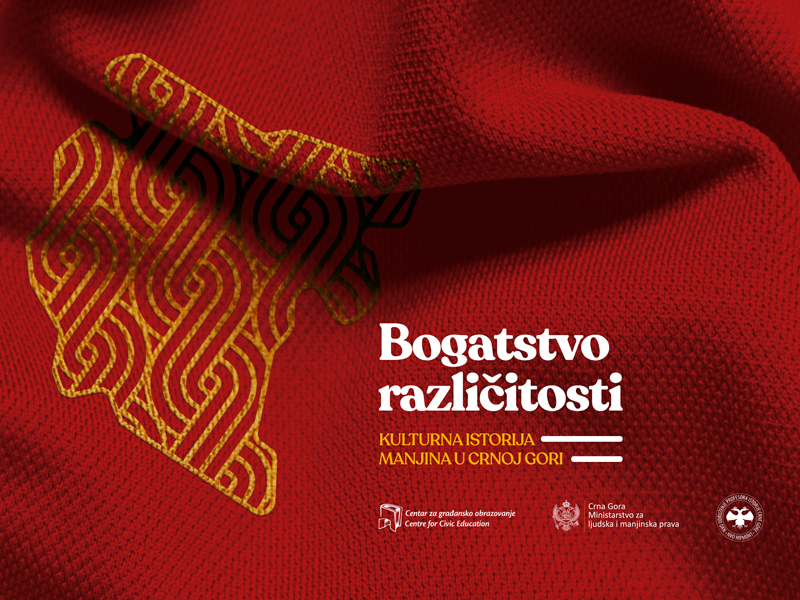In mid-January, the Centre for Civic Education (CCE) and History Teachers Association of Montenegro (HIPMONT) announced a call “Wealth of diversity – cultural history of minorities in Montenegro”, which generated a large number of high-quality workshops.
The editorial team of the CCE and HIPOMONT, according to the defined criteria, made a selection of 10 workshops, which are listed by the issues they cover not according to the ranking list:
- Sait Šabotić (Elementary School „Mileva Lajović Lalatović“, Nikšić): Oriental Islamic culture, cultural heritage of Bosnian/Muslim population of Nikšić;
- Ljiljana Bajčetić (Gymnasium „Tanasije Pejatović“, Pljevlja): insight into the everyday life of the Muslim population in Pljevlja;
- Marko Radojević (Gymnasium “Panto Mališić”, Berane): Affirmation of coexistence and tolerance;
- Valentina Knežević (Elementary School ”Dr Dragiša Ivanović“, Podgorica): Albanians – origin, lifestyle and the path to independence;
- Sait Šabotić (PI Elementary School “Mileva Lajović Lalatović”, Nikšić): Albanians in Montenegro;
- Tatjana Zambata (PI Gymnasium Kotor): Boka Navy;
- Martina Saulačić Lompar i Marija Saulačić (Elementary School „Ivo Visin“, Prčanj): Festa of St. Tryphon – patron saint of the city;
- Igor Radulović (Gymnasium “Slobodan Škerović”, Podgorica): Education of the Roma population in Montenegro;
- Igor Radulović (Gymnasium “Slobodan Škerović”, Podgorica): The history of Jews in Montenegro;
- Vesna Kovačević (Gymnasium “Slobodan Škerović”, Podgorica) and Zvezdana Lakić (PI Secondary Scool “Ivan Uskoković”, Podgorica): Montenegro – encounter of multiethnicity.
In addition to fulfillment of the technical requirements of the contest, in selecting the workshops, several criteria were considered: the example of good practice in the application of innovative teaching methods and operating mode; fulfillment of the basic didactic principles of teaching; application of multiperspective methods in teaching; development of critical thinking within pupils; raising awareness and developing the dialogue on mutual past to achieve reconciliation; strengthening teachers` competencies on how to teach controversial and sensitive issues in history teaching. In addition to the quality of workshops, the editorial team also focused on the presence of issues that deal with all minority peoples and other minority national communities in Montenegro.
Authors of the selected workshops will be informed about the details of publishing workshops and they will have the opportunity to present them at the training for history teachers which is planned to be held in March this year.
The competition is part of the activities of the project “Wealth of diversity – a cultural history of minorities in Montenegro”, which CCE implements in partnership with HIPMONT, with the support the of Ministry of justice, human and minority rights.
Miloš Vukanović, Advisor

